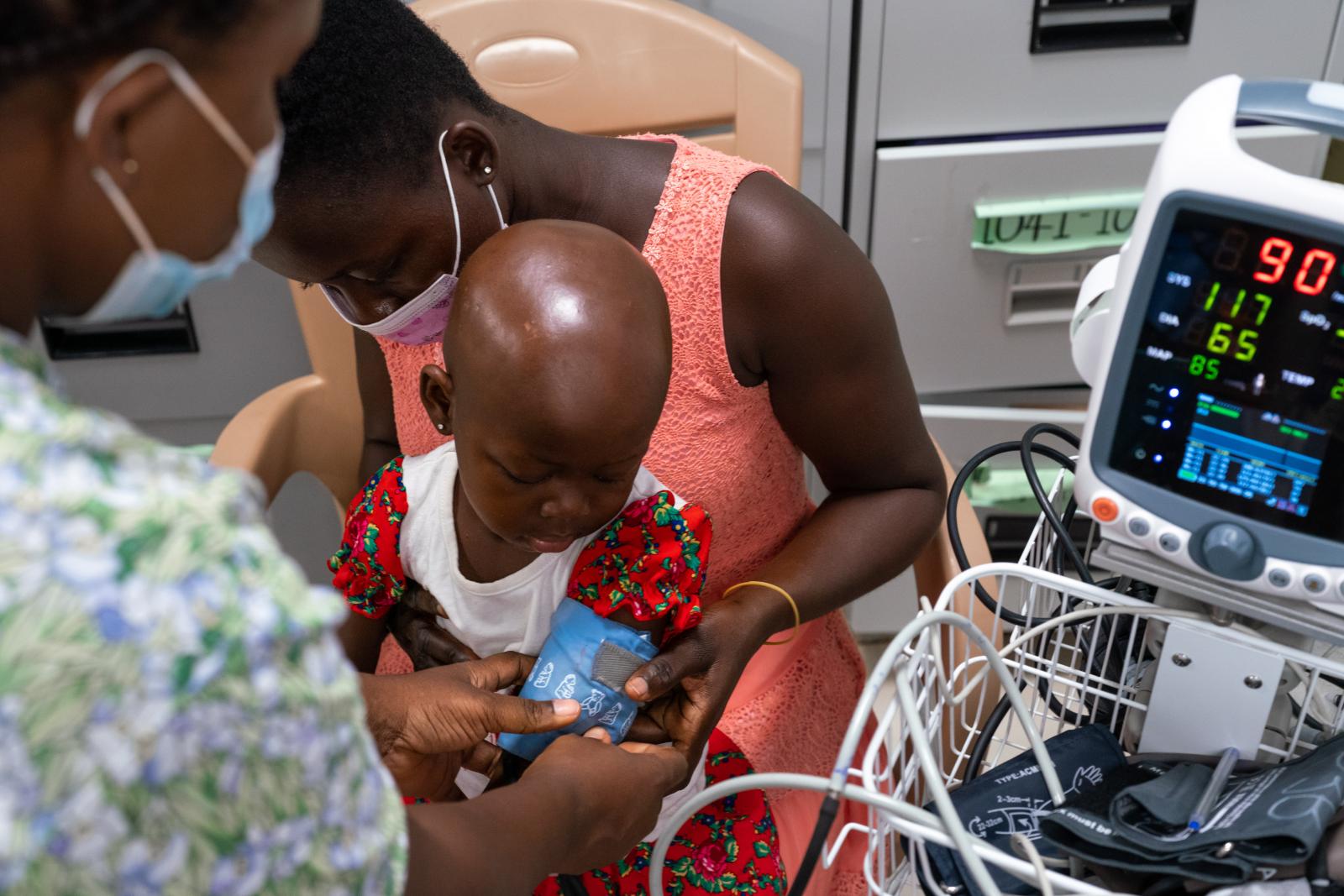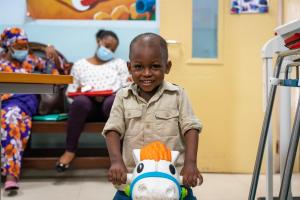Beating childhood cancer
Precious Amani may be only 11 years old, but she has already been through a lot. Diagnosed with a Wilms’ Tumor at an early age, she underwent years of therapy before being declared cancer-free four years ago.
“I was excited when I was told I’m cancer-free. I want to become a medical doctor in future, so I can also help children who go through what I went through,” says Precious, now happily back in school.
In Ghana, about 1200 children under the age of 15 are estimated to develop cancer annually. Unlike adult cancers, 8 out of 10 children diagnosed with cancer will survive the disease if it is detected early and access to treatment and care are available. However, in resource-constrained countries like Ghana, the reverse has been true: only 20% of children diagnosed with cancer survive. For many, the cost of treatment was prohibitive – as high as US$ 7000 for up to three years treatment for leukaemia. In low-income countries only 30% of patients access treatment.
“I was excited when I was told I’m cancer-free. I want to become a medical doctor in future, so I can also help children who go through what I went through.” Precious Amani, 11, cancer survivor
To save lives and reduce suffering of children with cancer, the World Health Organization’s (WHO) Global Initiative for Childhood Cancers (GICC) was launched in 2018 and Ghana is one of the six countries globally where the initiative has started up. Health workers at Korle-Bu receive technical support, in addition to monitoring and surveillance tools from WHO.
Until recently, treatment for childhood cancer was not included in the Ghana National Health Insurance scheme. Then in November 2021, childhood cancers were added to the National Health Insurance Scheme (NHIS) benefit, making some components of care such as diagnostics and supportive care free. The benefit package includes Burkitt’s lymphoma (bone marrow cancer often found in the jaw), Wilms’ tumour (cancer of the kidney), retinoblastoma (cancer of the back of the eye) and acute lymphoblastic leukaemia (cancer of the blood).

“The addition of childhood cancer to the NHIS Benefit Package is essential,” said First Lady of Ghana, Rebecca Akufo-Addo, announcing the addition of childhood cancers to the national health scheme. “It is cost effective, feasible and can improve survival of children with cancers.
“Our children deserve to live long productive lives, to enable them to compete successfully with any other child in the world.”
In Ghana, 42% of children with cancer are accessing treatment and since 2018, 85% of children complete a full round, that is up from 50% in 2010.



